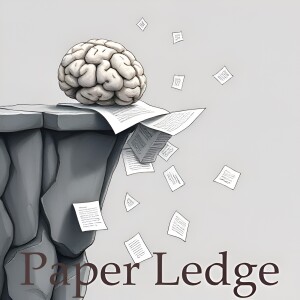

Computation and Language - WebGen-Bench Evaluating LLMs on Generating Interactive and Functional Websites from Scratch
Hey PaperLedge crew, Ernis here, ready to dive into something super cool! Today, we're talking about teaching AI to be website architects – building entire websites from scratch. Think of it like this: you give an AI a set of blueprints, not just for one room, but for the whole house, and it has to figure out everything from the foundation to the light fixtures!
The research we’re looking at introduces something called WebGen-Bench. It's essentially a super tough exam for AI website builders. Imagine giving an AI instructions like, "Create an online store where people can buy custom t-shirts, design their own logos, and track their orders." That's the kind of challenge we're talking about!
Now, what makes this benchmark so special? Well, it's not just some random collection of website ideas. The researchers teamed up humans and GPT-4o (the latest version of GPT-4) to brainstorm a whole range of website types – from simple blogs to complex e-commerce platforms. They broke it down into categories, ensuring that the AI gets tested on pretty much every kind of web application you can imagine.
But how do we know if the AI is doing a good job? This is where the real genius comes in. The researchers didn't just eyeball the websites. They used GPT-4o to create test cases - specific things the website should be able to do. Then, they manually checked and refined these tests to ensure they were accurate. It's like having a team of QA testers meticulously going through every button and feature. In total, they ended up with 647 incredibly detailed tests.
These tests are then run automatically on the websites the AI creates, using a "web-navigation agent" - think of it as a robot browser. This robot clicks buttons, fills out forms, and checks if the website responds as expected. This makes the entire process reproducible, so other researchers can easily verify the results.
The researchers put three top-performing AI coding frameworks – Bolt.diy, OpenHands, and Aider – to the test using different AI "brains" (LLMs). The results? Even the best combination, Bolt.diy powered by DeepSeek-R1, only got about 27.8% of the tests right! This shows just how incredibly complex it is to build a website from scratch, even for the most advanced AI.
"The best-performing combination... achieves only 27.8\% accuracy on the test cases, highlighting the challenging nature of our benchmark."So, where do we go from here? The researchers also created something called WebGen-Instruct - a training dataset of 6,667 website generation instructions. They used a subset of this data to train an open-source model called Qwen2.5-Coder-32B-Instruct using Bolt.diy. And guess what? It achieved 38.2% accuracy, beating the best proprietary model! This shows that with the right training data, open-source models can compete with, and even surpass, the performance of closed-source giants.
Now, why should you care about this research? Well, if you're a developer, it highlights the current limitations of AI in code generation and provides a challenging benchmark to push the boundaries of what's possible. If you're in business, it offers a glimpse into the future of website development and the potential for AI to automate complex tasks. And if you're just a tech enthusiast, it's a fascinating look at how AI is learning to create and manage complex systems.
Here's a question to chew on: If AI can eventually build websites from scratch, what will that mean for the role of human web developers? Will they become more like architects, designing the overall vision, while AI handles the nitty-gritty details?
And another one: Could these AI-powered website builders democratize web development, allowing anyone to create a professional-looking website, even without coding experience?
That's all for today, crew! Until next time, keep exploring and keep learning!
Credit to Paper authors: Zimu Lu, Yunqiao Yang, Houxing Ren, Haotian Hou, Han Xiao, Ke Wang, Weikang Shi, Aojun Zhou, Mingjie Zhan, Hongsheng Li
More Episodes
All Episodes>>Create Your Podcast In Minutes
- Full-featured podcast site
- Unlimited storage and bandwidth
- Comprehensive podcast stats
- Distribute to Apple Podcasts, Spotify, and more
- Make money with your podcast












